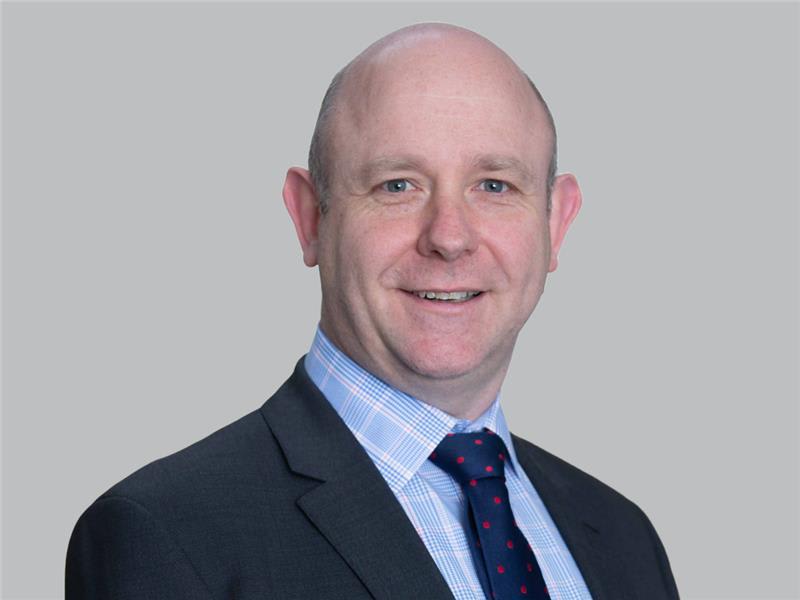When most people think about insolvency and restructuring, the focus tends to fall squarely on numbers: assets, liabilities, creditor claims, and distributions.
But as Adrian Hunter, Partner in RSM’s Melbourne Restructuring & Insolvency division, explains, the reality of this work reaches far beyond the balance sheet.
With more than 30 years in the profession, Adrian has seen firsthand that every insolvency is also a deeply human story, one that involves business owners, employees, families, and communities.
Moving beyond misconceptions
“Insolvency is often misunderstood,” Adrian explains. “People assume we just come in and fire employees, close down companies and fire sale the assets. In reality, our role is far broader than just shutting down companies. Yes, there’s a regulated process around investigating affairs, realising assets, and reporting to creditors. But there’s also a pathway for people to move on; whether that’s an employee finding a new role with more security, or a director taking time to reset their career and personal life.”
taking time to reset their career and personal life.”
For Adrian, insolvency and restructuring is about creating the conditions for fresh starts. “A business closure isn’t just the end of the road. It can free people from anxiety, give them space to reconnect with family, and restore confidence in their future.”
Guiding under pressure
High-stakes, high-stress situations are part of Adrian’s daily work. Yet he approaches them with calm and empathy.
“We’re stepping into problems that aren’t of our making,” he says. “Our job is to bring structure, options, and reassurance. Not every outcome will be ideal for everyone, but the focus is always on minimising damage, reducing stress, and helping all stakeholders move forward with clarity.”
This mindset is what Adrian believes sets RSM apart: an emphasis on holistic outcomes and people-first engagement, rather than treating insolvency as a purely technical exercise.
Real-world impact: more than financial closure
Family-run enterprises present some of the most complex and emotional challenges.
Adrian Hunter

“You might have a father and his children all working in the business. If the company fails, it’s not just financial - it’s legacy, identity, and relationships on the line. In those situations, you need to be clear, empathetic, and very transparent. Surprises are the worst thing you can deliver. We spend a lot of time simplifying complex legislation so that families understand the implications and feel equipped to make informed decisions.”
The technical outcomes of insolvency, settling debts, distributing funds, etc, are only part of the story. For Adrian, the most rewarding moments come when he sees the personal impact of his work.
He recalls a business owner who had been under immense pressure as his company went into liquidation. Several months later, Adrian happened to see him again. “He was a different man, lighter, happier, full of energy. The insolvency process gave him
closure. He’d moved on personally and professionally, and the relief was written all over his face. That human transformation isn’t captured on a balance sheet and because we usually part ways once the job is done, moments like this are a rare reminder of the lasting, positive impact RSM can have on a client’s future.
Safe Harbour and small business restructuring: breathing room for directors
Two tools Adrian frequently uses are Safe Harbour Advisory and the government’s Small Business Restructuring (SBR) regime. Both enable directors to remain in control while navigating financial challenges.
“In Safe Harbour or SBR, our role is more about guiding and monitoring,” Adrian explains. “We help directors stay compliant, check progress against milestones, and give creditors comfort that an independent professional is involved. It creates breathing room, time for directors to think clearly, bring in other expert advisers, and explore genuine turnaround options.”
That collaborative approach often leads to better results, preserving jobs and stakeholder value, and allowing directors to take decisions without feeling overwhelmed or isolated.
Collaboration with trusted advisers
Adrian works closely with accountants, lawyers, and financiers, recognising that each plays a vital role in guiding clients through difficult transitions.
“Sometimes an accountant has done everything they can and hands over completely. Other times, everyone is in the tent together, pushing in the same direction. Collaboration is key. There are always multiple agendas at play, so our role is to balance them and help achieve an outcome with as many winners as possible.”
Changing the conversation: failure or reset?
Public perception of insolvency often lags behind reality. “There’s still pub talk about bankruptcy being a permanent stain, or directors gaming the system,”
Adrian says. “The truth is more nuanced. Sometimes businesses fail despite directors doing everything right. Other times, fresh starts are essential for innovation and entrepreneurship. What matters is transparency, fairness, and consequences where there’s wrongdoing, but also pathways for honest business owners to reset.”
The importance of early advice
When asked what advice he would give to a director who can’t sleep at night, weighed down by mounting debt, Adrian is clear: “Seek professional advice early. Don’t rely on barbecue talk or the experience of someone who ‘once went bankrupt’. Every case is unique. Start with your accountant or lawyer, and if needed, get referred to a registered insolvency practitioner. Most of us will spend time with you at no cost initially, just to help you understand your options.”
The three key ingredients for a successful turnaround, Adrian notes, are time, money, and people.
“The earlier you come to us, the more options are available. Leave it until the day before a winding-up hearing, and sometimes there are no rabbits left to pull out of the hat – we're not magicians, but we are here to help.”
Beyond the balance sheet
At its core, Adrian's work is about people. While the numbers, creditor returns, asset recoveries, and financial outcomes are essential, they don’t tell the full story.
Sometimes a true measure of success lies in the human impact: helping individuals walk away from financial distress with dignity, clarity, and the confidence to begin again. Whether it’s guiding a director through Safe Harbour, supporting a family business through liquidation, or simply offering reassurance in a moment of crisis.
In a profession often perceived as cold and clinical, it is important that people understand that restructuring is not just about closing chapters—it’s about opening new ones. And that journey always begins with a conversation.
Contact Adrian for a confidential chat, everything starts with a conversation.





